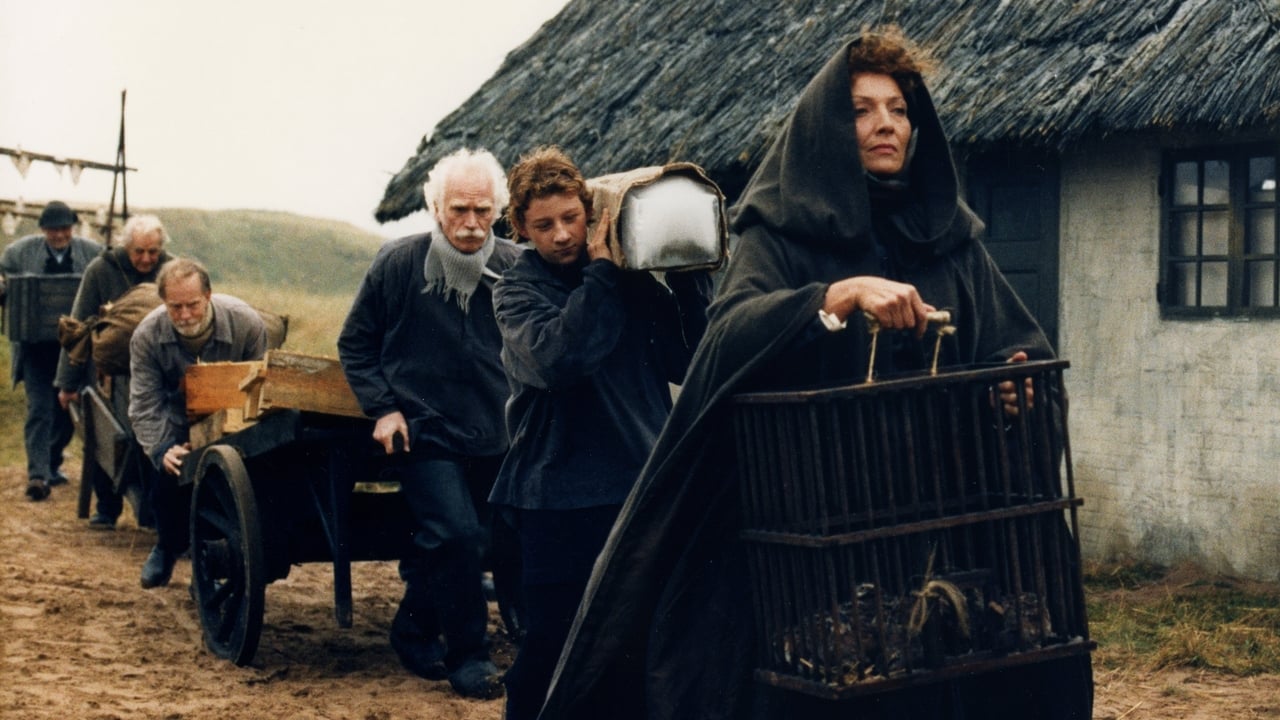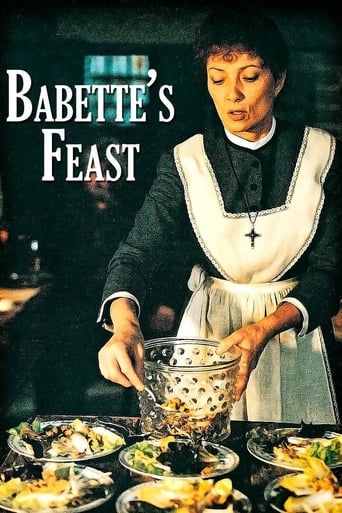

Babette's Feast is considered among the top movies of all time.It moves in it's own time, which may frustrate those who expect instant gratification.It is also not in English, so English speakers will have to read the subtitles.What it is, is just about the perfect film. It is best described as a touching comedy, with some serious, dramatic elements, none of which take over the film and attempt to overwhelm the viewer, but are presented matter-of-factly. By the end, you will have laughed more than you remember, and you may very well have shed tears.But tears are not due to sadness. Tears come from humor and joy. This is an understated film that touches your soul while making you laugh.
... View MoreMuch like the delicacies that grace the table in this film, each scene of "Babette's Feast" seems a treat for the senses -- a joy to behold, against the hardscrabble backdrop of Jutland, Denmark. Whenever I am asked to name my favorite film, "Babette's Feast" jumps to mind. Babette is the ultimate role model -- a woman who survives the worst of life only to rebound with strength and vibrancy. I have seen this dazzling movie several times over the years, and in the past I focused on the meal's magical impact on guests at the feast. This time around I found Babette and Achille Papin most compelling."An artist is never poor," Babette reminds us. And aren't we all, potentially, artists? Quoting the French baritone Achille (played exquisitely by Jean-Phillipe LaFont): "One long cry from the heart of the artist -- Give me leave to do my utmost!" Mirroring the bedecked table, the casting here approaches perfection. Stephane Audrane was born to play a French refugee in a small Danish village, bantering with the locals to get a better price on fish. Bodil Kjer and Brigitte Federspiel shine as a pair of religious sisters -- but, for God's sake, why couldn't Lorens's intended utter even a word to the smitten man? And Jarl Kulle fascinates as a worldly general whose military regalia belies a poetic soul. "He visited many times but it seemed to him he grew more insignificant each time." (Wow, does that line nail one of life's sadder experiences!) And later, this sensitive man confides, "...I have learned in life there are some things that are impossible..."I will never forget this film, and if I somehow become stranded on a desert island, this is the only movie I'd ever require. Babette, thank you for your example!
... View MoreAs someone who has read the short story by Isak Dineson along with the movie, I agree with many others that this movie is not simply a "foodie flick," but offers a psychological and religious depth perspective on the life of a woman who's lost everything near and dear to her and how she manages to rise above her grievous losses. The book portrays Babette as a dark, formidable presence in the lives of Martina and Philippa. Axel downplays this aspect, but does maintain it in subtle ways. Axel does go beyond Dineson's portrayal by suggesting Babette is a kind of Christ figure. For more on these themes, a simple online search for critical articles about the movie yields many fine writings (see esp. the Journal of Religion and Film and the Carl Jung page).
... View MoreSo I watched the critically acclaimed Babette's feast from 1987. Well is this movie a classic I say a resounding yes. Is it for everyone no! Am I possibly biased because, I like Babette am a true artist in the kitchen. That is possible but what about all the others who love this classic. This movie is about lost love, struggle, loss, religion, dedication, the paths we take, and the choices we make, it is about joy and acceptance, and learning to free oneself to be happy in the presence of a puritan God, all over a kick ass meal. However, most of all this movie is about that "kick ass" greatest meal ever. If transformers was not your favorite movie of the last decade, if you did not have to run to see Sex in the City, if your idea of talent is not Ben Affleck, then run don't walk to your computer and download this flick. Or just do what I did and catch it on satellite one day, but by all means see this film, it is really brilliant. if you like concise reviews of interesting films please read my other reviews at http://raouldukeatthemovies.blogspot.com/
... View More